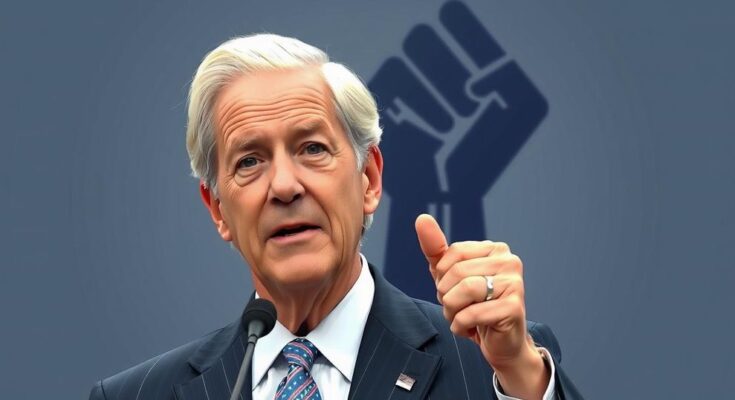This article explores the similarities between Presidents Jimmy Carter and Joe Biden, emphasizing the enduring challenges such as economic instability, foreign conflicts, and public distrust that have plagued both administrations. The retrospective analysis reveals how past crises resonate with current political dynamics, underscoring the cyclical nature of leadership challenges in the United States.
The legacy of former President Jimmy Carter reverberates through contemporary political challenges faced by President Joe Biden. Despite the considerable time that has elapsed since Carter’s departure from the presidency, the obstacles confronting the United States in 2024 mirror those of the late 1970s, including economic instability, foreign conflicts, and a crisis of confidence within the public. From the economic turmoil and interactions with global powers to the environmental and energy challenges now exacerbated by climate change, the parallels between these two leaders are striking.
During Carter’s presidency, the global landscape was marked by challenges such as the Iranian hostage crisis and his administration’s perceived failures regarding the Soviet invasion of Afghanistan. Similarly, President Biden has grappled with the repercussions of extended military engagements, most notably the withdrawal from Afghanistan and the ongoing conflict in Ukraine that has tested American resolve. Both administrations have witnessed their efforts to navigate international crises met with limitations and frustrations that reflect the complex nature of global leadership.
Moreover, the theme of public trust resonates profoundly across both administrations. Carter’s acknowledgment of a “crisis of confidence” in 1979 mirrors current sentiments, as public trust in government continues to wane. Despite Biden’s governance and attempts to restore faith in institutions, the enduring skepticism among citizens remains a critical challenge. This ongoing distrust is further fueled by political conflicts, exemplified by Donald Trump’s controversial rhetoric regarding both past and present leadership.
In juxtaposing their post-presidential trajectories, Carter’s commitment to humanitarian efforts and global health initiatives starkly contrasts with Trump’s ongoing political pursuit, highlighting divergent approaches to civic duty and legacy building. Both former leaders served against significant odds, yet their legacies in the eyes of the public and historical narratives remain as open questions in an ever-evolving American political landscape.
Analyzing the challenges faced by President Jimmy Carter during his administration reveals enduring themes relevant to President Joe Biden’s leadership. Both leaders have encountered significant obstacles, from economic crises to international conflicts, that unsettle American society and governance. Observing the resonance of Carter’s “crisis of confidence” with current public attitudes further illustrates the complexity of leadership during trying times. The challenges posed by global politics and domestic trust in government remain pivotal in understanding the nuances of their presidencies and legacy.
In conclusion, the parallels between Presidents Carter and Biden highlight the cyclical nature of political challenges in the United States. Both leaders faced pressing economic and foreign policy issues that tested their administrations and public trust in government. As the nation continues to grapple with similar dilemmas, the historical context provided by these two presidencies offers valuable insights into the enduring struggles of American leadership. The persistence of public skepticism presents an ongoing dilemma that future leaders must navigate thoughtfully as they strive to restore faith in governmental institutions.
Original Source: www.bbc.com




